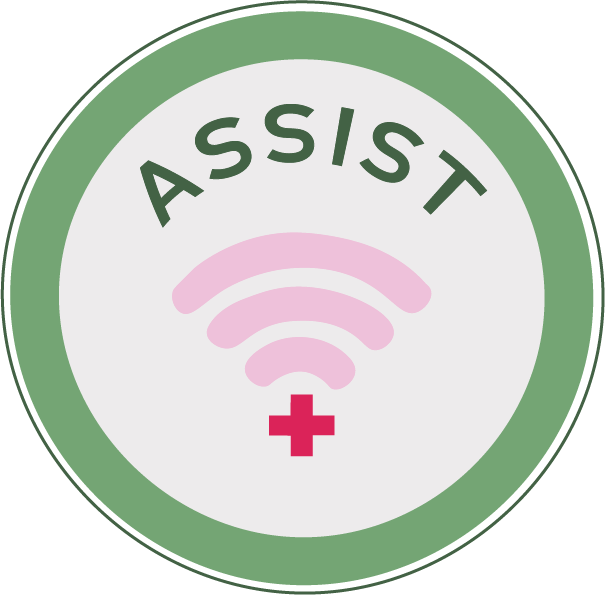Information for Healthcare Professionals

Here are the answers to some frequently asked questions about the ASSIST study. If you cannot find the answer to your question then please contact us for more information.
What is the ASSIST study?
ASSIST is a 45-month mixed-methods study led by Prof Fiona Burns and Dr Jo Gibbs from University College London. It is funded by the National Institute for Health and Care Research (NIHR). It aims to assess the impact of online postal self-sampling (OPSS) services on health inequalities, access to care, and clinical and economic outcomes, and to identify the factors that influence the implementation and sustainability of OPSS services.
ASSIST comprises the following four inter-linking workstreams:
Workstreams 1 and 2 provide an impact evaluation of the effect of OPSS on access to care, health inequalities and clinical and economic outcomes:
Workstream 1 examines the impact of introducing OPSS services on health inequalities, access to services and clinical outcomes, using quantitative analysis of existing surveillance data, clinic/OPSS datasets, and qualitative interviews with service users and healthcare professionals.
Workstream 2 analyses the costs and outcomes associated with OPSS services compared to clinic-based services, through undertaking an economic analysis based on the resource use, clinical outcomes and cost data collected from each case study area.
Workstream 3 is an in-depth evaluation of the implementation process of OPSS. It describes and evaluates how implementation processes and service delivery models contribute to observed variation in clinical- and cost-effectiveness. It uses document analysis, in-depth and contextual observational interviews, and normalisation process theory.
Workstream 4 ensures that the initial programme theories of impact and implementation of OPSS are iteratively refined into more detailed realist programme theories using relevant data from across all workstreams. It will start with one or more initial programme theories that explain impact and implementation. It will iteratively use and synthesize the data from across workstreams 1, 2 and 3 to further develop and refine our initial programme theories over the course of the evaluation. It will allow us to say ‘what works, for whom and under what circumstances’ for the impacts and in implementing and sustaining OPSS services.
For more information about the study methodologies please contact the Co-Chief Investigators Prof Fiona Burns ( f.burns@ucl.ac.uk ) and Dr Jo Gibbs ( jo.gibbs@ucl.ac.uk )
Which organisations are collaborating on ASSIST?
ASSIST is a collaborative study led by Prof Fiona Burns and Dr Jo Gibbs, from the Institute for Global Health, University College London. The research team is multidisciplinary, spanning clinical and academic sexual health & HIV medicine, health psychology, epidemiology, health services research, survey design expertise, public health, statistics, health economics, qualitative research, and data synthesis.
The following organisations are collaborating on ASSIST:
- University College London
- Chelsea & Westminster Hospital NHS Foundation Trust
- NHS Greater Glasgow & Clyde
- UK Health Security Agency
- University Hospitals Birmingham NHS Foundation Trust
- University of Birmingham
- University of Oxford
The following research sites are participating:
- Barts Health NHS Trust
- Central & North West London NHS Foundation Trust
- Chelsea & Westminster Hospital NHS Foundation Trust
- Sexual Health London (SHL.UK)
- Sheffield Teaching Hospitals NHS Foundation Trust
- University Hospitals Birmingham NHS Foundation Trust
Why conduct an evaluation of online postal self-sampling?
Sexual health is a UK public health priority. Diagnoses of sexually transmitted infections (STIs) are increasing in England and Scotland, causing significant impact on quality of life, morbidity and substantial health costs. There is growing unmet need for rapid STI diagnosis, yet funding has reduced and services are fragmented. Provision of online postal self-sampling (OPSS) for STIs and HIV is seen as a means to address these challenges.
There is an active drive to channel people who are asymptomatic away from face-to-face (F2F) services and towards OPSS, yet the effectiveness and cost-effectiveness of this approach is unknown. The situation is further complicated with F2F services being reduced or centralised in many areas.
The urgent need for evaluation of OPSS increased further as a result of the COVID-19 pandemic, along with the potential for transferable learning.
In addition, sexual and reproductive health service provision has dramatically altered in terms of both initial access (with many walk-in services no longer being available), and remote (e.g. phone) consultations being introduced as standard methods of service delivery in clinic-based services.
This study will conduct a wide-ranging evaluation of OPSS services to determine their impact on health inequalities, access, clinical and public health outcomes, service delivery, and other healthcare services. It will provide transferable learning to similar regional sexual health online services, across the UK and internationally, as well as other Local Authority/NHS services nationwide.
It will evaluate the effectiveness and cost-effectiveness of this digital intervention, and identify what works well, for whom, and when. In addition, the evaluation will provide much needed evidence to develop national quality measures and standards of care for OPSS services. This evaluation goes beyond asking ‘does it work’, by identifying what works for whom, why and in which contexts to inform future service delivery.